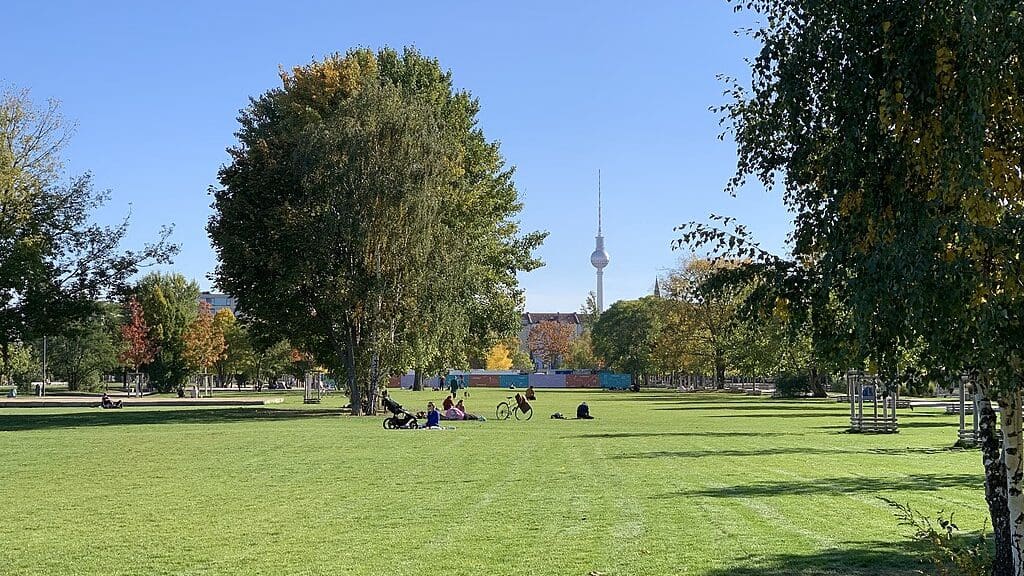
Mauerpark, Berlin
Traktorminze, CC BY 3.0, via Wikimedia Commons
Climate change is to blame for rising violence in one of Berlin’s most famous parks, according to a major German newspaper.
The Mauerpark has already seen 108 reported offences in the first half of 2024, making it one of the German capital’s crime hotspots. However, liberal Der Tagesspiegel quotes an activist who takes the term ‘hotspot’ one step further.
“Above 26 degrees, many people reach their energy limits and literally have problems staying cool,” says Chaska Stern, the honorary spokesperson for the Federal Network for Civil Courage.
This is a problem, because “it is getting hotter and hotter worldwide” because of climate change.
And when it is hot, “‘the fuse gets shorter,” Stern adds. This makes people “more prone to violence, and you should take into account that you could find yourself in at least one verbal altercation.”
This is not the only problem hot weather creates. Since “there are simply more people meeting outside, many men have a sexualised view, are hormonally charged and cannot keep themselves under control. Then there is more catcalling.”
Authorities should therefore “create cooling places for civilians in public” to help prevent violence.
As Apollo News points out, Stern does not mention—nor does Der Tagesspiegel ask him—who the people committing this violence actually are. Nor does the paper ask why violence is growing in some areas but not others.
On the same day that the paper published the article, the German federal police released a report showing that last year, the number of crimes committed in Germany rose to its highest rate since 2012.
Federal police chief Dieter Romann said that “non-Germans are statistically six times more likely to resort to knives in an attack than German citizens. And in sexual crimes, it is seven times more likely.”
Meanwhile, the interior minister of the German state of North Rhine-Westphalia last month said police should announce the nationality of criminal suspects as a matter of principle.
Herbert Reul said the move would create a greater sense of transparency. It would also save the police time since their press officers often have to deal with questions from journalists about suspects’ nationalities.
By publishing the nationality of offenders, the police want to “create fact-based transparency,” a spokesman for the regional interior ministry said. “In addition, the [North Rhine-Westphalia] police want to anticipate speculation and counter the accusation of wanting to conceal something.”
Earlier this year, Reul made headlines when he said: “We have a problem with non-German criminals.”
